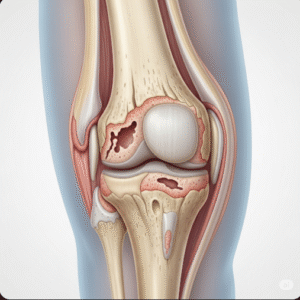Overview
Insulin resistance is a metabolic condition where the body’s cells become less responsive to the hormone insulin, which regulates blood sugar levels. As a result, glucose builds up in the bloodstream, leading to higher blood sugar and often progressing toward type 2 diabetes. Insulin resistance is also linked to other health issues like obesity, cardiovascular disease, and metabolic syndrome.
In Korea, the prevalence of insulin resistance has been rising due to lifestyle changes such as decreased physical activity and increased consumption of high-calorie foods. Korean healthcare providers focus on early diagnosis and lifestyle interventions to manage and prevent insulin resistance and its complications.
What is Insulin Resistance?
Insulin resistance occurs when muscle, fat, and liver cells do not respond properly to insulin, a hormone produced by the pancreas that helps cells absorb glucose from the blood for energy. To compensate, the pancreas produces more insulin. Over time, this compensatory mechanism fails, and blood glucose levels rise. This condition is a key feature of prediabetes and is often a precursor to type 2 diabetes.
Symptoms
Insulin resistance itself usually does not cause obvious symptoms initially. However, signs may include:
- Increased hunger and cravings for sugary foods
- Fatigue or low energy
- Difficulty losing weight despite diet and exercise
- Darkened skin patches (acanthosis nigricans), especially around the neck or armpits
- Elevated blood pressure and abnormal cholesterol levels
- Weight gain, particularly around the abdomen
Because symptoms are subtle, insulin resistance often goes undiagnosed until blood tests are performed.
Causes
Several factors contribute to the development of insulin resistance:
- Excess body fat, especially abdominal fat
- Sedentary lifestyle and lack of physical activity
- Genetic predisposition
- Hormonal disorders such as polycystic ovary syndrome (PCOS)
- Certain medications (e.g., corticosteroids)
- Aging and metabolic changes
- Chronic inflammation linked to obesity
Risk Factors
The risk of insulin resistance is higher in individuals who:
- Are overweight or obese
- Have a family history of type 2 diabetes
- Are physically inactive
- Have high blood pressure or abnormal cholesterol levels
- Have PCOS or other endocrine disorders
- Belong to certain ethnic groups, including East Asians, who may develop insulin resistance at lower BMI levels
- Are smokers or have poor dietary habits
Complications
If unmanaged, insulin resistance can lead to:
- Type 2 diabetes mellitus
- Cardiovascular diseases such as heart attack and stroke
- Non-alcoholic fatty liver disease (NAFLD)
- Metabolic syndrome
- Kidney disease
- Increased risk of certain cancers
Prevention
Preventive measures primarily focus on lifestyle modification:
- Maintain a healthy weight through balanced diet and regular exercise
- Adopt a diet rich in whole grains, vegetables, lean proteins, and healthy fats
- Limit intake of sugary foods and refined carbohydrates
- Avoid smoking and excessive alcohol consumption
- Regular health check-ups to monitor blood sugar and insulin levels
Treatment Options in Korea
Diagnosis
Korean medical facilities use blood tests such as fasting glucose, insulin levels, and HOMA-IR (Homeostatic Model Assessment of Insulin Resistance) to diagnose insulin resistance. Oral glucose tolerance tests and HbA1c measurements may also be used to evaluate glucose metabolism.
Medical Management
- Lifestyle interventions are the cornerstone of treatment. Korean physicians often recommend tailored exercise programs and nutrition counseling.
- Medications such as metformin may be prescribed to improve insulin sensitivity, especially if prediabetes or diabetes develops.
- Treatment of associated conditions like hypertension or dyslipidemia is important.
Traditional Korean Medicine (TKM)
Many Koreans also seek complementary therapies such as acupuncture and herbal medicine, which aim to improve metabolism and reduce insulin resistance. Licensed TKM practitioners often integrate these with conventional treatments.
Public Health Initiatives
Korea has launched national campaigns promoting healthy lifestyles, regular screenings, and diabetes prevention programs, particularly targeting high-risk populations.
Prognosis in Korea
With early diagnosis and lifestyle changes, insulin resistance can often be reversed or controlled effectively. Korea’s healthcare infrastructure supports comprehensive management, combining modern medicine with traditional approaches to optimize patient outcomes.













